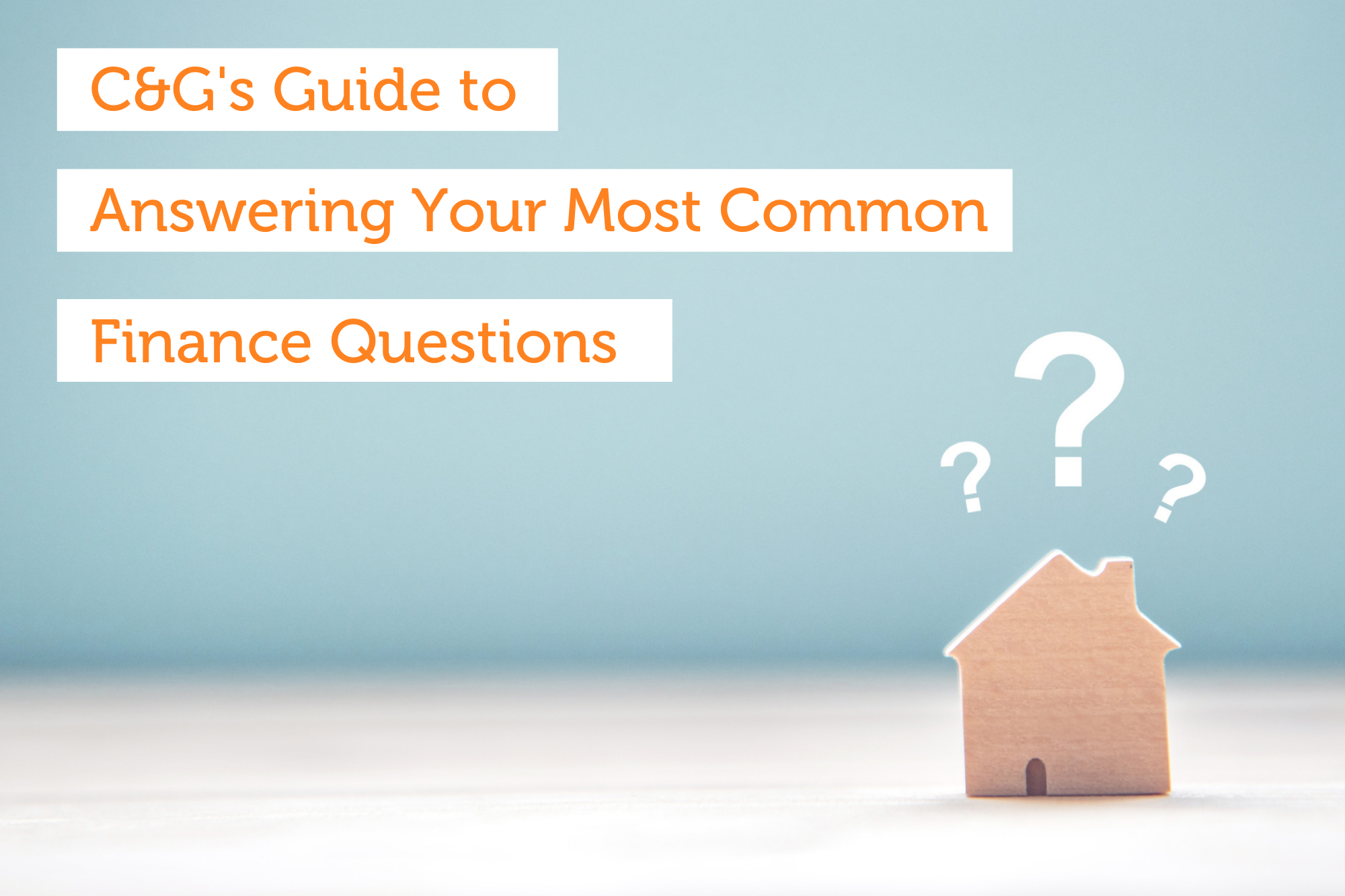C&G’s Guide to Answering Your Most Common Finance Questions
Buying a property is an exciting prospect, but for first-home buyers there’s also a fair amount of stress regarding finances. It’s very common to have a lot of questions, particularly as you’ll be encountering industry jargon that you may never have heard before!
In this C&G blog we explain some of the most frequently asked financial questions from first-home buyers so that you can put your best foot forward when looking for your dream home!
What is Pre-Approval?
When purchasing a property, you’ll typically require financial assistance in the form of a loan from a lender. When you contact the lender of your choice, you can ask them to pre-approve you to borrow a certain amount, which is known as “conditional approval”.
For example, the lender may guarantee you a $500,000 loan, allowing you to borrow up to that amount. This might help you determine whether or not you’ll be approved for a loan, as well as cut down your search for homes in that price range.
It’s a good idea to start looking into lenders and getting pre-approval near the start of your home-buying journey, because if you happen to find a property you like, you want to feel safe knowing you can make an offer.
How Much Deposit Will I Need?
This can be a challenging question to answer, as it will vary depending on each person’s individual circumstances and the property they’re hoping to purchase. However there are some general rules that you can use as guidance.
Usually, 20% of the full value of the house is a good amount to aim for as a deposit. Most lenders will use a loan to value (LVR) calculation to assess the amount they are willing to lend for a home loan. LVR is the amount of your loan compared to the bank’s valuation of your property, expressed as a percentage.
You can still get a loan if you have a smaller deposit, but it’s worth remembering that a smaller deposit means you’ll need to borrow more - which means you’ll pay more interest and potentially higher monthly repayments. Furthermore, a smaller deposit may mean you need to take out Lenders Mortgage Insurance (LMI), which adds an additional cost to your loan that will take longer to pay off.
What is Lenders Mortgage Insurance?
LMI is essentially insurance that a lender takes out to insure itself against the risk of not recovering the outstanding loan balance if you, the borrower, are unable to meet your loan payments and the property is sold for less than the outstanding loan balance.
If you don’t have a substantial deposit (usually 20%), but otherwise meet lender requirements, LMI can make it easier for you to obtain mortgage finance from a lender because there’s less risk involved for them.
What is Stamp Duty?
Stamp duty is a tax levied by all Australian state and territory governments to cover the expense of transferring the property’s title to you and can be quite costly, making it important to factor into your overall budget. Stamp duty can fluctuate quite significantly depending on things such as the property’s location, whether it’s your first home purchase or an investment, and the price of the property.
How Long Does It Take to Receive Full Loan Approval?
The average time for formal home loan approval will vary depending on the demand for that lender’s services and the state of the property market. For example, during the height of the pandemic, loan approval times increased significantly due to the booming market. Approval can take anywhere from one week to four weeks, generally speaking.
What if my Home Loan isn’t Approved in Time?
If your home loan approval is delayed, it could mean that you miss out on scoring your dream home because you're unable to bid at auction or submit an offer. If your lender is dragging their heels, the first step you should take is to contact the bank to see what’s delaying the process.
It may be as simple as lengthy processing times if there has been a deluge of applications, or your application may be missing some important documents.
Do I Need to Pay for a Conveyancer?
Conveyancing is the legal process of preparing and organising the required documents involved in the transfer of property from one person to another.
Though an individual can indeed perform their own conveyancing, it’s recommended to engage a professional, who can oversee the legal aspects of the property transfer and provide you with peace of mind that the exchange will run smoothly.
Conveyancer pricing will vary, however you can typically expect the pricing to fall between $400 and $800 depending on the property itself and the state where you’re located. Additionally, disbursement costs may be incurred by the conveyancer as they research your property and relevant legal requirements (e.g. for title searches or council requirements), which they will then pass onto you.
When Do My Mortgage Repayments Start?
Congratulations, you’ve got the keys to your first property, and you’re probably working your way through a moving to-do list! But now that you’ve got a mortgage, when exactly do you have to start paying it back?
Depending on your home loan repayments, your first repayment is usually due a month after the settlement date. But it’s poignant to know that some lenders will allow you to make repayments fortnightly or even weekly, which can reduce the overall interest that you pay.
If you’re looking for professional finance advice you can trust, Bayside’s real estate experts Chisholm & Gamon can point you in the right direction. Get in touch with our friendly team today!
